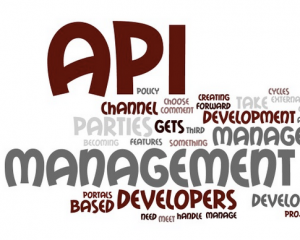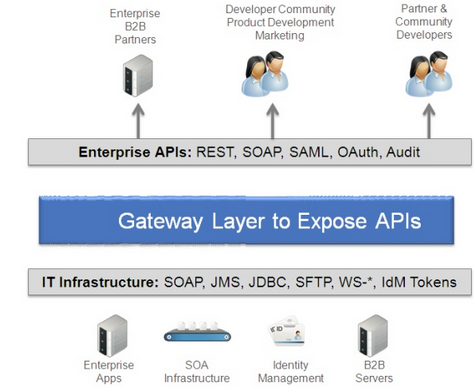
The article describes API management platforms and why are they needed at all.
What are API Management Platforms?
As businesses start exploring about taking the API route to integrate their applications in one line of business (LOB) with applications from other LOBs or, expose their APIs to external partners, the need for one of these API management platforms start cropping up. Even before we go further, lets understand as to why an enterprise considers adopting the API strategy in the first place? Well, one full article could be written as an answer to this question. However, briefly speaking, APIs primarily allow enterprise and its different LOBs to achieve following objective:
- Extend/share their data, processes and applications/services to other LOBs in the company, external partners, and customers, developers’ community at large, mobile apps etc. These APIs are exposed using various different interfaces such as web, mobile, cloud, b2b etc.
In order to achieve this objective, following are some of the primary concerns that are needed to be taken care:
- API Development Lifecycle consisting of concerns such as API creation, publishing, and support. This is much more critical as the need is to rapidly create new APIs on top of existing business assets based on changing business scenarios
- API security (authentication, access control, policies, intrusion detection)
- API usage monitoring & scaling appropriately as and when required
- API control & governance
To take care of some of the above needs, API management platforms are needed.
API management platforms acts as a proxy or gateway between consumers and enterprise APIs and, primarily, supports management of APIs including aspects such as exposing, securing, governing, and monitoring APIs usage. Following is diagrammatic representation of one of the models using API management platforms.
Following are some of the key components/modules of such APIs platform:
- Administration
- Developer Portal
- Security (Access control, Audit trail)
- Analytics
- Reporting
- Monitoring
- Billing & Payments
What are some of the top API management platforms?
Following seem to be top API management platforms as they occured on the first page of google search when I searched with keywords, “API Management Platforms”. The list below does not mention the platforms in that order based on any criteria.
Ok, Enough! What is the deployment model looks like when working with these API management platforms?
API management platforms can run both, locally in one’s data center and, also based on multi-tenant SAAS model being run in the vendors’ data center. All said and done, these platforms act as a gateway or proxy between API consumers and API providers. Once you decide to go with these SAAS based API management platforms, your APIs get published through platform service endpoints. And, you pay via subscription models for API requests that passes through these API gateways. The benefit with SAAS based model is that you focus on your core competency while the API vendor manages the API management issues such as enterprise-grade cloud infrastructure with global points of presence (POps), dynamic scaling, security, governance and 24/7 monitoring and support.
[adsenseyu1]
- The Watermelon Effect: When Green Metrics Lie - January 25, 2026
- Coefficient of Variation in Regression Modelling: Example - November 9, 2025
- Chunking Strategies for RAG with Examples - November 2, 2025


I found it very helpful. However the differences are not too understandable for me